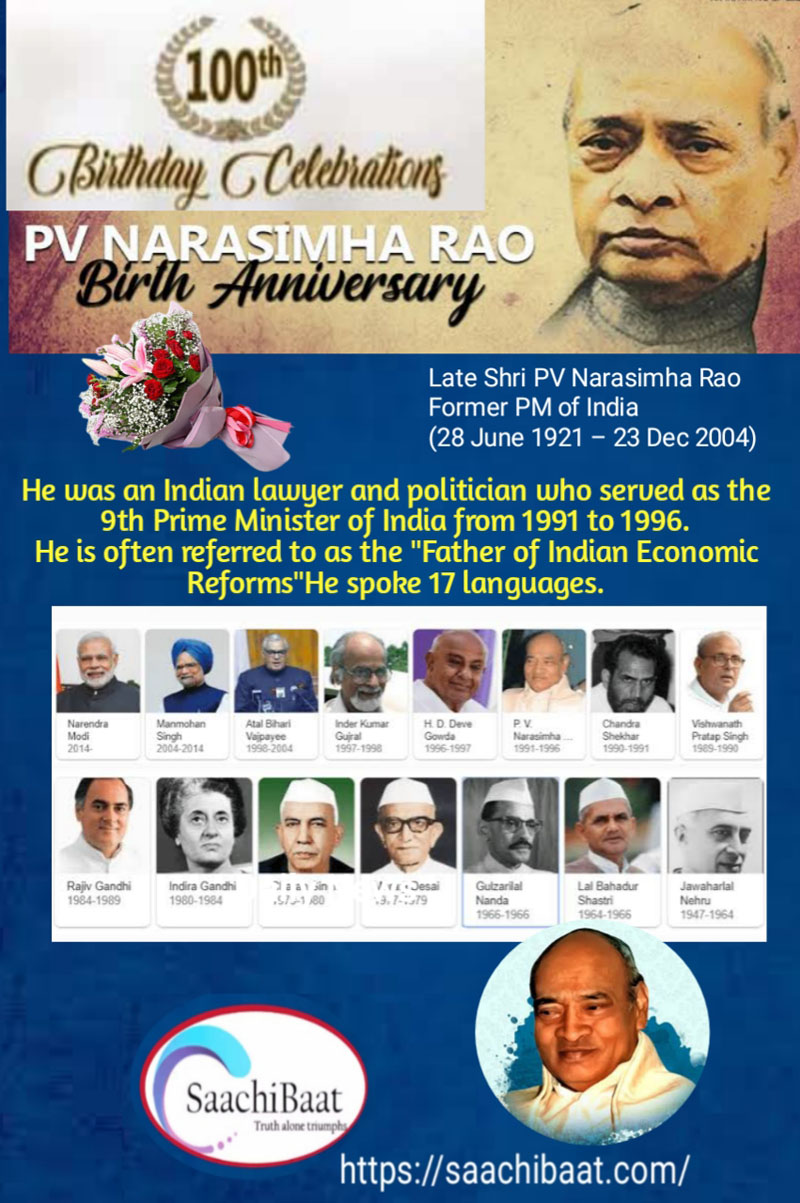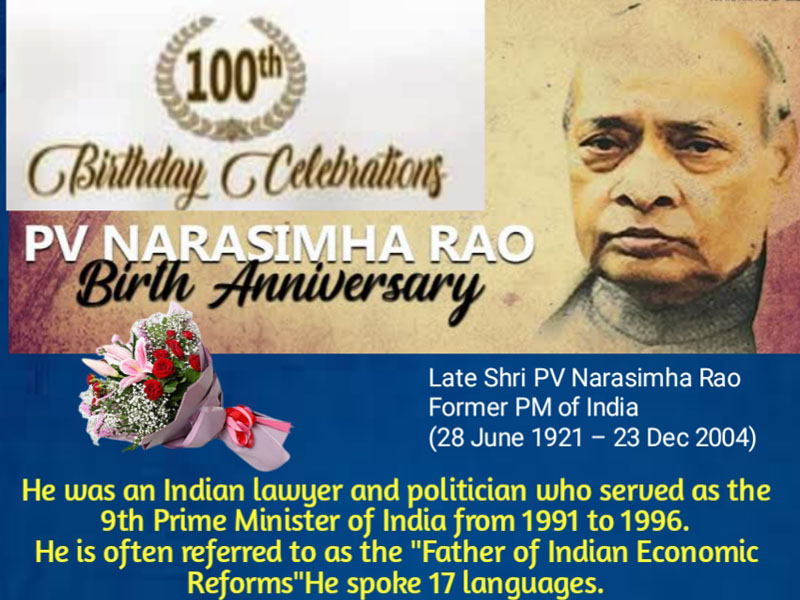
Pamulaparthi Venkata Narasimha Rao or PV Narasimha Rao (28 June 1921 – 23 December 2004) was an Indian lawyer and politician who served as the 9th Prime Minister of India from 1991 to 1996.
P. V. Narasimha Rao was born in a Telugu speaking Niyogi Brahmin family in the village of Laknepalli village of Narsampet mandal, in Warangal Rural district, now in Telangana.
Popularly known as P. V., he completed part of his primary education in Katkuru village of Bheemdevarapalli mandal in Warangal Urban district by staying in his relative Gabbeta Radhakishan Rao’s house and studying for his Bachelor’s degree in the Arts college at the Osmania University.
P. V. Narasimha Rao was part of Vande Matram movement in the late 1930s in the Hyderabad state.
He later went on to Hislop College, now under Nagpur University, where he completed a Master’s degree in law. He completed his law from Fergusson College in Pune of the University of Bombay (now Mumbai).
P. V. edited a Telugu weekly magazine called Kakatiya Patrika in the 1940s. Both P. V. and Sadasiva Rao contributed articles under the pen-name Jaya-Vijaya.He served as the chairman of the Telugu Academy in Andhra Pradesh from 1968 to 1974.
Rao was an active freedom fighter during the Indian Independence movement and joined full-time politics after independence as a member of the Indian National Congress.He served as an elected representative for Andhra Pradesh state assembly from 1957 to 1977.
He served in various ministerial positions in Andhra government from 1962 to 1973. He became the Chief minister of Andhra Pradesh in 1971.
Rao nearly retired from politics in 1991. It was the assassination of the Congress President Rajiv Gandhi that persuaded him to make a comeback.
As the Congress had won the largest number of seats in the 1991 elections, he had an opportunity to head the minority government as Prime Minister.
He is often referred to as the “Father of Indian Economic Reforms”. He spoke 17 languages.
Rao was also referred to as Chanakya for his ability to steer economic and political legislation through the parliament at a time when he headed a minority government.
Rao died in 2004 of a heart attack in New Delhi. He was cremated in Hyderabad. He was a versatile thinker with interests in a variety of subjects (other than politics) such as literature and computer software (including computer programming).


